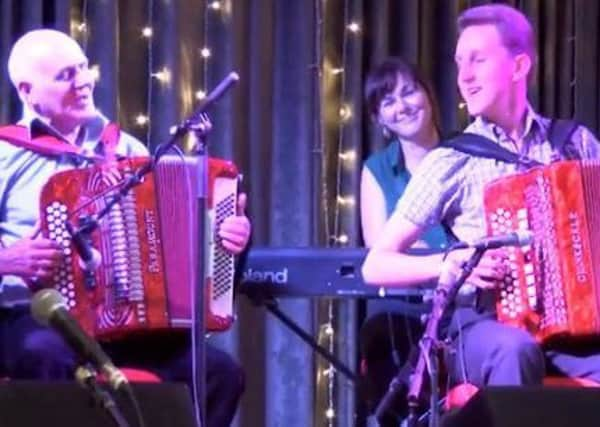Gearing up for a fantastic Ceòlas 2019


This year the South Uist event will welcome:
Cathy Ann MacPhee, Alasdair C Whyte and Mary Jane Lamond from Cape Breton leading the Singers, who will now have their Ceilidh on the Monday evening;
Kenneth MacKenzie and Harvey Beaton from Cape Breton will do Piping for Dance and the Step Dance;
Advertisement
Hide AdAdvertisement
Hide AdPiping tutors will be Ailean Dòmhnullach and Ashley MacDonald will teach Youth Piping;
Mats Melin and Sophie Stevenson will take the other Step Classes as well as the Reels & Quadrilles;
Fiddle will be Shelly Campbell, Fiona MacAskill and Robbie Greig, with Iain MacFarlane teaching Youth Fiddle;
Clàrsach will be Ingrid Henderson who will be warmly welcomed and the Gaelic class tutors will be Alec ‘Bhaltos’ MacDonald, Catriona MacIntyre and Catriona Black;
Advertisement
Hide AdAdvertisement
Hide AdAngus John MacDonald will run a Gaelic-medium class about Uist seanchas-based lore between 10.45 and 11.30, available as a drop-in like all the classes.
The musicians for dance will be: Sarah Hoy, Shona Masson, Seonnaidh MacIntyre and Alana MacInnes.
Ceòlas has visited Edinburgh in the last two years during Seachdain na Gàidhlig, which has been enjoyed by those attending the mini-Ceòlas day, and arising from them Ceòlas has been invited to contribute to Gaelic days at Newbattle Abbey College on 9th and 10th March and to host a day in Glenrothes on 23rd March, organised by Iain MacIver, a retired stalwart from now disbanded Highlands & Islands Society of London, for the Fife Gaelic Development Group.
Ceòlas in the last two years has run three Gaelic immersion courses annually for teachers training at the University of Strathclyde.
Advertisement
Hide AdAdvertisement
Hide AdThe courses harness the skills and abilities of the community to demonstrate the ‘living’ language and increase students’ oral speaking.
This is sometimes the first time people hear the language in normal use, and it can be challenging for those unaccustomed to the everyday language as it is used daily within the community.
A four-week residential course ran in August 2018, the first of its kind in Scotland, which was attended by five teachers.